|
Very soon, Australia will at last have a legitimate climate policy. Labor has clinched the crossbench support it needs to pass its climate change bill through the Senate ahead of a final vote, possibly today.
For even the most casual climate policy observer, it’s an occasion worth marking. Over the past decade, climate policy paralysis has dogged Australian politics. The new law will enshrine Labor’s emissions reduction policy, as well as a host of checks and balances to ensure the policy is evidence-based and lives up to its intent.
But as the Australian National University’s Frank Jotzo writes today, the bill isn’t perfect. Its emissions reduction goals lack the ambition needed to keep global warming below the crucial 1.5℃ threshold. And it misses an important opportunity to cement in law certain policy levers that would deliver, among other things, a proper national conversation about how Australia reaches net-zero emissions.
All this might leave you wondering what more you can do to tackle climate change at home. Today, RMIT’s Alan Pears offers a potential answer. He urges greater use of heat pump technology, such as that used in reverse-cycle air conditioners. Pears says a typical heat pump in Australia will cut emissions by three-quarters relative to an electric fan or panel heater – and as a bonus, could slash energy costs by a whopping 90%.
|

|
Nicole Hasham
Energy + Environment Editor
|
|
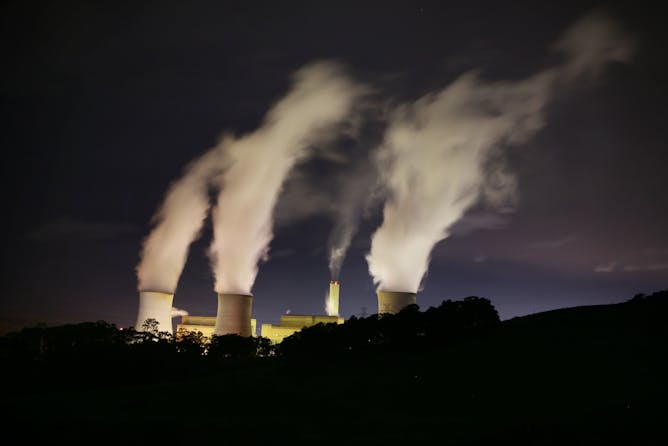
Frank Jotzo, Australian National University
When it comes to emissions reduction, Australia needs a proper national conversation and a long-term plan. The climate change bill about to pass parliament doesn’t provide this.
|
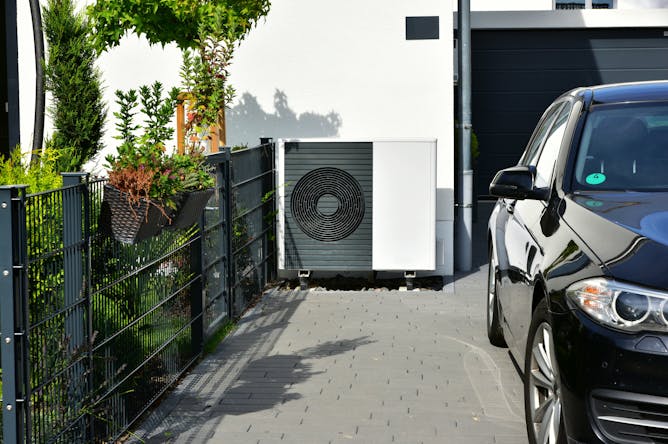
Alan Pears, RMIT University
Heat pumps use a fraction of the energy of traditional electric or gas heaters, which means they slash both energy costs and emissions.
|
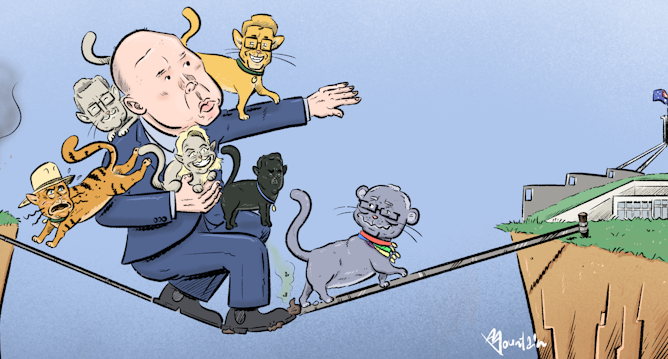
Mark Kenny, Australian National University
His approval ratings are in the basement, but the opposition leader’s first priority must be holding the Coalition together.
|

Louise Stone, Australian National University
What good is asking someone if they are OK if we are just performing empathy? And what do we do if they are really not OK?
|

Dennis Altman, La Trobe University
Breaking History reads like a dutiful student’s account of ‘what I did on my summer holidays’. But Kushner provides useful insights into the Washington and Middle Eastern policy-making processes.
|
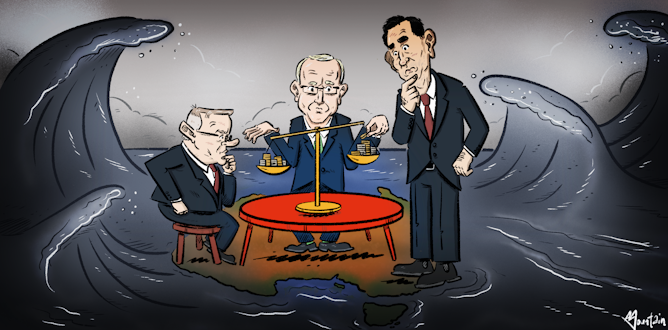
John Hawkins, University of Canberra
Australia’s economy grew unusually strongly in the year to June, when interest rate increases were yet to bite.
|
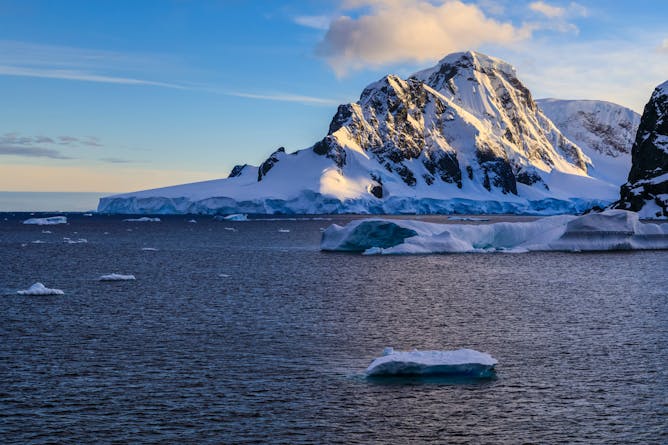
Maurice Huguenin, UNSW Sydney; Matthew England, UNSW Sydney; Ryan Holmes, University of Sydney
Southern Ocean heat uptake accounts for almost all the planet’s ocean warming, thereby controlling the rate of climate change.
|
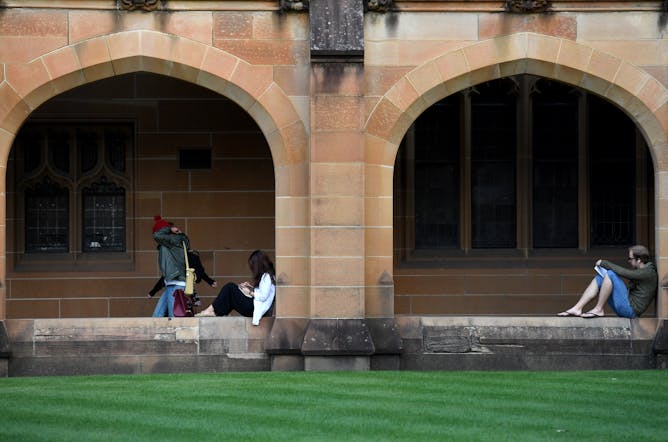
Shane Dawson, University of South Australia; Anna Sullivan, University of South Australia; Barney Dalgarno, University of Canberra; Donna Pendergast, Griffith University
Education Minister Jason Clare says completion rates for teaching degrees are 50% compared to 70% for other degrees. This sounds alarming but there is a different way to look at the figures.
|
Politics + Society
|
-
Andreea S. Calude, University of Waikato; Sam Campbell, University of Waikato
Despite a lack of enforceable remedies, international experience suggests the proposed new ‘plain language’ law should improve official communications.
-
Sharon Bessell, Australian National University
Children reported five key things they need from their communities, including better infrastructure and more inclusive spaces.
-
Mirella Atherton, University of Newcastle; Amy Maguire, University of Newcastle
The Albanese government’s decision to eliminate the cashless debit card has been celebrated but the effect on First Nations communities has raised concerns.
-
Christine McCarthy, Te Herenga Waka — Victoria University of Wellington
Prison is far from a home away from home, and offenders get very little time to put their affairs in order after sentencing. More time to adjust for life on the inside would be humane and practical.
|
|
Health + Medicine
|
-
Karen Murphy, University of South Australia
Soy offers many potential health benefits and is generally cheaper than meat.
|
|
Science + Technology
|
-
Gail Iles, RMIT University
Artemis I launch has been ‘scrubbed’ a couple of times now. Why is a launch window so important, and what does scrubbing mean, anyway?
|
|
|
|
Arts + Culture
|
-
Roger Benjamin, University of Sydney
Hammamet with Its Mosque, a little picture with a monumental impact, belies a complex history of cross-cultural encounter.
|
|
Books + Ideas
|
-
Ari Mattes, University of Notre Dame Australia
Heat 2, the literary sequel to Michael Mann’s classic cops-and-robbers film, is weird. Would it stand alone as a novel? Possibly not. But reading it is an incredibly pleasurable experience.
|
|
Business + Economy
|
-
Patricia Ranald, University of Sydney
Investor-state dispute settlement clauses in the Comprehensive and Progressive Agreement for Trans Pacific Partnership allow Australia to be sued for reducing fossil fuel use.
-
Geoff Hanmer, University of Adelaide
The National Construction Code has no minimum ventilation requirements for schools, aged care institutions, pubs, restaurants and health care facilities.
|
|
| |
|
|
|
The Conversation AU
Melbourne VIC, Australia
•
Full Time
|

|
|
University of Tasmania
Launceston TAS, Australia
•
Full Time
|

|
|
Australian National University
Canberra Australian Capital Territory, Australia
•
Full Time
|

|
|
|
|
| |
| |

|
| |
| |
| |
Featured Events, Courses & Podcasts
|
View all
|
|
7 October 2021 - 7 October 2026
•
|

|
26 September - 3 December 2022
•
Melbourne
|

|
8 September 2022
•
Camperdown
|
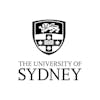
|
14 September 2022
•
Camperdown
|

|
|
|
|
| |
| |
| |
| |
| |
|
|